In Defense of Food: a book review
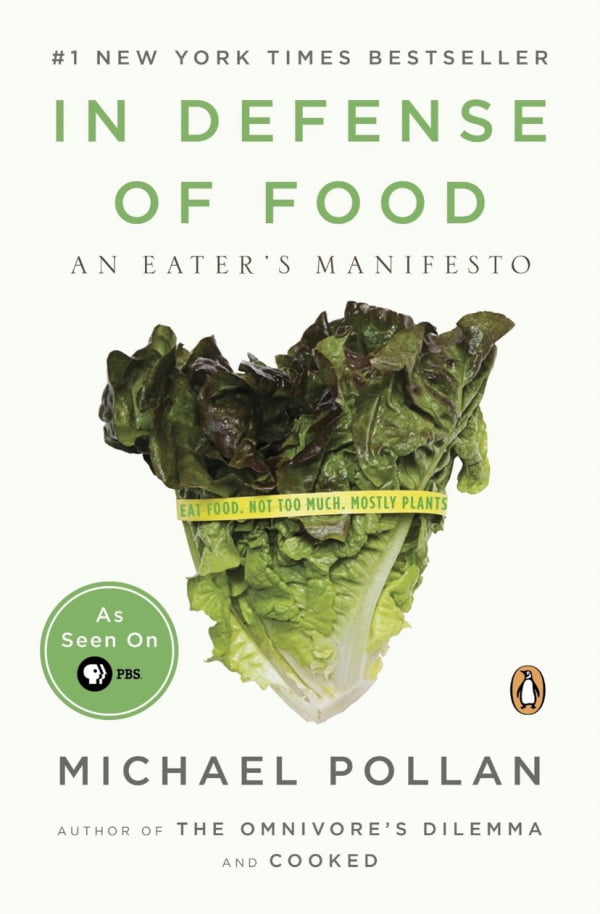
Everyday it seems a new miracle diet hits the market or a ground-breaking nutritional study is released…one that contradicts the last great breakthrough. How’s a gal (or guy) supposed to know what to eat for optimal health?
If you are looking for a simple answer to this complex question, Michael Pollan’s In Defense of Food: An Eater’s Manifesto is the book for you. It doesn’t get much simpler than this:
Eat food. Not too much. Mostly plants.
The end. Story finished.
Well actually the book goes on for another 250 pages, much of it explaining how things got so complicated in the first place…the roles played by government, nutritionists, journalists, and the weight loss industry.
There is also a discussion of what qualifies as food…and when and why did we exchange whole food for nutrients? Can you really break out nutrients and assign health value without considering other factors in the item of food or relationships between the factors?
In the final chapters of the book, Pollan gets to the practical tips for following his initial advice: Eat food. Not too much. Mostly plants. I’ll share the headlines with you here. If you are intrigued, I hope you will read In Defense of Food: An Eater’s Manifesto for further details.
Eat food
- Don’t eat anything your great grandmother wouldn’t recognize as food; or if you prefer, don’t eat anything incapable of rotting.
- Avoid food products containing ingredients that are a) unfamiliar, b) unpronounceable, c) more than five in number, or d) that include high-fructose corn syrup.
- Avoid food products that make health claims on the package.
- Shop the peripheries of the supermarket and stay out of the middle.
- Get out of the supermarket whenever possible. Shake the hand that feeds you. (Think farmers’ market or community-supported agriculture.)
Mostly plants
- Eat mostly plants, especially leaves. Treat meat like a seasoning.
- You are what what you eat eats too. The diet of the animals we eat has a bearing on the nutritional quality of the food itself.
- If you have the space, buy a freezer. Freezing (unlike canning) does not significantly diminish the nutritional value of produce.
- Eat like an omnivore.
- Eat well-grown food from healthy soils.
- Eat wild foods when you can.
- Be the kind of person who takes supplements…then save your money.
- Eat more like the French. Or the Italians. Or the Japanese. Or the Indians. Or the Greeks.
- Regard “innovative” foods with skepticism.
- Have a glass of wine with dinner.
Not too much
- Pay more, eat less.
- Eat meals.
- Do all your eating at the table.
- Don’t get your fuel from the same place your car does.
- Try not to eat alone.
- Consult your gut.
- Eat slowly.
- Cook. And, if you can, plant a garden.
About the book
ISBN-13: 9780143114963
Publisher: Penguin Publishing Group
Publication date: 04/28/2009
Pages: 256
Your turn
- Have you read any good books lately? Please share.
- Do you have a healthy-eating rule of thumb?
- What else is on your mind? Anything at all; I just love hearing from you.


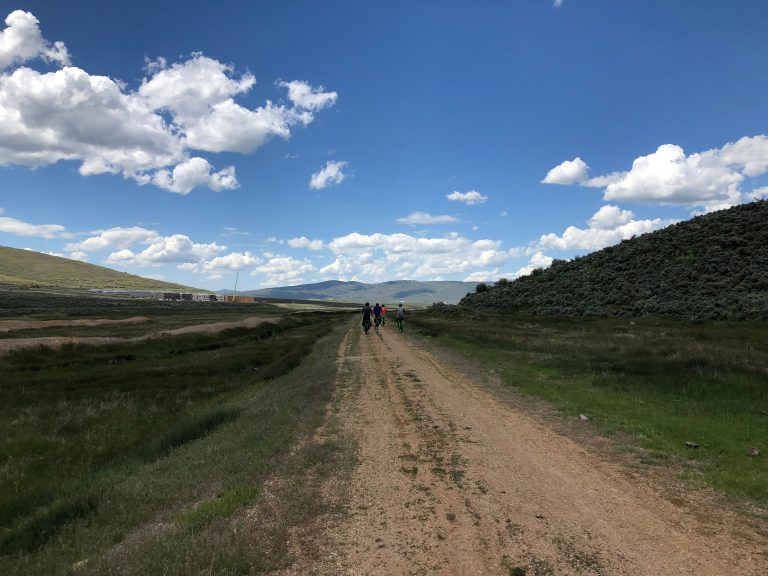
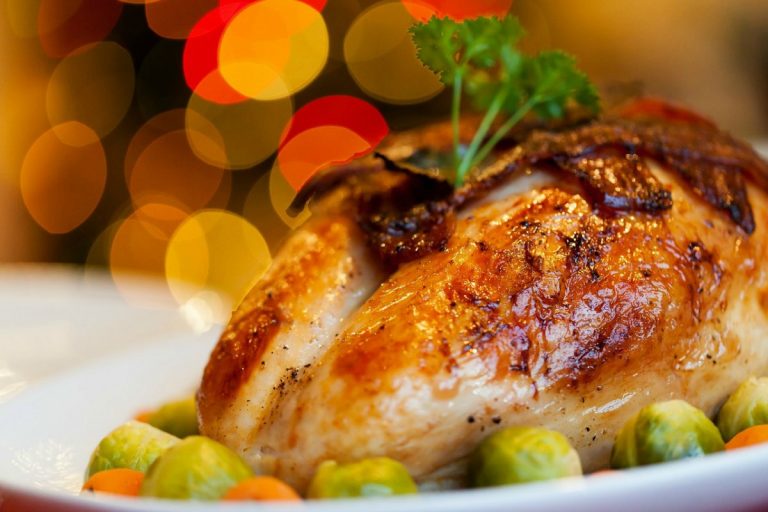
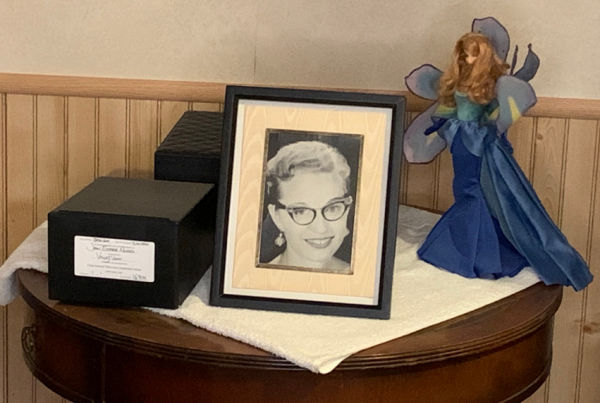

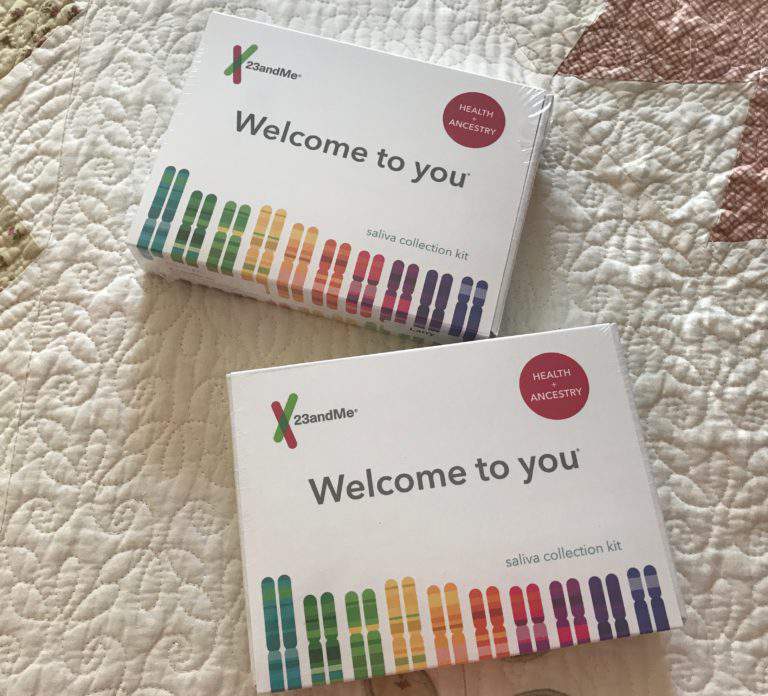
This is great advice and makes complete sense to me.
Thank you for sharing this with us, Christie!
You’re welcome Donna. It was a good read.
I remember reading that book years ago… I think it may be time to reacquaint myself with it. Thanks for the reminder that eating well doesn’t have to be complicated.
I did enjoy the book, Janis. You gotta love someone that advises, “Drink wine with dinner.”
Sounds like a very smart way to eat. I’m curious what “be the kind of person that takes supplements and then save your money” means? I did ask a doctor once if I should take vitamins and he responded “sure, if you want to waste your money”.
The author agrees with your doctor. He said studies show people who take supplements are generally healthier, but it’s more about their lifestyles than the supplements. So he is saying live a healthy lifestyle but skip the supplements.
When did eating become so complicated? Such wisdom here. Found it ironic that we should steer clear of foods that make health claims. And to just eat well rather than supplementing our diet with stuff we should just get from a healthy diet.
My sister and now my best friend are doing the Optavia diet. My sister is down almost 20 pounds but hasn’t eaten much real food in months. The diet has her eating lots of ‘bars’ and ‘crisps’ and drinking shakes. I worry what will happen when she does begin to eat real food again.
Have always been a stickler for eating at the table. Heard years ago that children who were raised having dinner at the table are less likely to be alcoholics. Not sure if that is true but used that as my explanation for why we had to sit in the dining room with the TV off. Most nights.
Thank you for sharing this interesting read.
It is kind of crazy, Leslie, what we’ve done to food and eating. The author talks a lot about how we used to learn about food from our mothers and grandmothers, and now it’s mostly from marketers and journalists. And, of course, we’ve grown distant from the growing and even preparing of our own foods. I know I’ve grown too reliant on packaged food-like stuff, and I’ve been working on undoing that. I read labels now, not for the fat content, but for the ingredients.
I think it’s great that you have established the habit of eating at the table and enjoying each others company while you do so. There are so many benefits to that…health and social. Good on you!
Love the simplicity of his approach. I chuckled at ‘don’t fuel where you buy your fuel’. After an eighteen day road trip, that one hit home! Luckily for me, a lot of them stock fruit.
It is nice that gas stations are stocking a bit more variety, including produce. I must confess my go-to snack on a road trip is a salted nut roll and a fountain drink…not high quality fuel, but so enjoyable.
I never read this book but I like the premise and the advice. It seems odd to me that someone had to write a book that told us to eat food, but obviously some people need reminding. Not me, I’m good at finding, making, and eating real food. Maybe too good, now that I think about it.
It is a little crazy that anyone would need to “defend” food, but the author does a good job explaining how it became necessary. Good for you on finding, making, and eating real food. I got a little complacent and reliant on processed food-like substances over the years, but I’m getting better, just by making a conscious effort to think about it and plan more.
One thing that came out of Covid restrictions here in the UK was that because of the huge queues to get into supermarkets, we had to become more organised in meal plans and using our freezers properly. By planning a week in advance it was easier to make sure we ate a varied diet. We now try to have our days planned so that we have one meal of the following every week, white fish, oily fish, chicken twice, vegetarian twice, with only one day of red meat, unless we have a roast when we use the left overs for the next days dinner. My food waste went down a lot too, so there were some good things about when we were in lockdown even though we didn’t realise it at the time!
Hello Deb! I think it’s great that you are able to recognize lessons learned and some good things that came from COVID restrictions. No matter how difficult things are, there is always something to be gained. Your meal plan sounds perfect. I’m looking forward to farmers markets starting up again soon. There is nothing like fresh, local produce.
Great review…someone could definitely glean good tidbits (punny?!) just from your outline.
Like Janis, I remember this book from a few years ago and like Ally, I tend to make my own food (I was the earth mama who used the baby food grinder back when only those of us on the ‘fringe’ did so!!!)
😎
Take care, Christie.
Hello Laura and welcome! Your “punny” tidbits comment made me smile. It sounds like you were ahead of your time with serving real food to your family–or maybe you actually went further back in time to our great grandmothers.